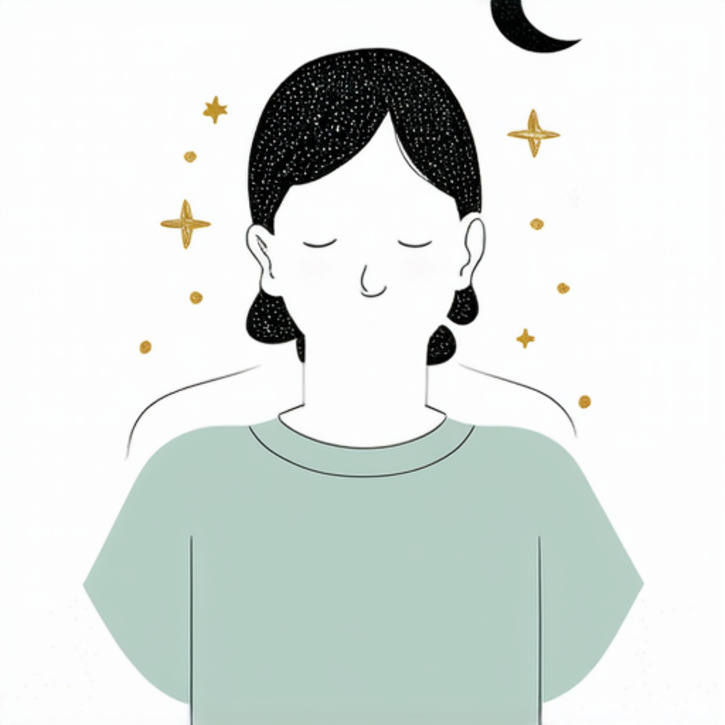The Best Non Addictive Sleep Aids That Actually Work – Expert Recommendations

Discovering Top Non-Addictive Sleep Aids That Truly Deliver – Expert Picks
Why It’s Crucial to Find Non-Addictive Sleep Solutions
Getting to Grips with Common Sleep Struggles
Let’s face it—many of us have spent countless nights tossing and turning. Whether it’s insomnia, sleep apnea, or even disruptions to our natural body clock, sleep struggles are more widespread than you might think. These issues not only steal away our rest but also wear down our physical health and emotional well-being. When you break down the roots and ripple effects of these sleep disorders, it becomes clear why having a balanced, non-addictive sleep aid in your corner can be a game changer. People often find that once they understand what’s really keeping them up at night, they’re much more motivated to adopt smarter, holistic sleep strategies.
Diving deeper into sleep challenges shows us that it’s rarely one single factor. Stress, erratic daily schedules, and even the overuse of traditional sleep drugs all play a part. Many have discovered that while addictive medications might seem like a quick fix, they often lead to dependency and create even more headaches down the road. As our understanding grows, more people are turning to safer, natural options that work with the body’s own rhythms instead of fighting them. In a world where sleep is increasingly recognized as a pillar of overall vitality, choosing natural methods to curb your nighttime struggles seems like a win-win. We, as experts in sleep and hearing wellness, are all in favor of exploring these wise, natural alternatives.
Perils of Relying on Traditional Sleep Meds
For years, conventional sleep meds have been the go-to fix for those sleepless nights. Sure, they promise rapid relief, but there’s a catch. Many users eventually face side effects like lingering drowsiness, foggy thinking, increased fall risk, and even memory lapses. Over time, the need to up the dosage for the same sleepy-time effect can lead straight into dependency town. It’s a clear reminder that while they might knock you out for the night, these meds hardly address the core issues affecting your sleep quality and overall health.
Besides the physical drawbacks, the psychological toll can be just as challenging. Many people start worrying that they just can’t sleep without these pills, creating a vicious cycle of dependency and anxiety. This growing awareness has sparked a shift toward non-addictive solutions that support, rather than sabotage, our natural sleep cycle. Embracing these safer alternatives means working with your body’s own capabilities and rhythms—cutting down the risk of chemical dependency while still catching quality Z’s. As research continues, the spotlight is increasingly on these natural sleep aids as the smarter, safer pathway to long-term sleep management.
Why People are Buzzing About Non-Addictive Solutions
In today’s health-conscious world, the dangers of medication dependency are hard to ignore. That’s why non-addictive sleep aids are quickly becoming the hot topic among those seeking lasting relief. Instead of putting their trust in drugs that come with a laundry list of side effects, more and more folks are exploring methods that deliver sustainable, uninterrupted sleep. This trend marries cutting-edge scientific research with timeless herbal remedies, creating a solution that not only meets the immediate need for better sleep but also nurtures overall health by syncing with the body’s internal rhythms. As the movement towards holistic health grows, so does the credibility of these natural sleep solutions.
When we peer into the science of sleep regulation, both modern research and age-old herbal wisdom show that non-addictive aids harness nature’s best ingredients to foster a truly restorative sleep experience. By steering clear of harsh synthetic chemicals, these gentle solutions support the body’s own processes—ensuring benefits that go well beyond just a night’s sleep. With an increasing number of sleep enthusiasts turning to natural health remedies, it’s evident that a truly effective sleep aid must respect and enhance your body’s intrinsic systems.
How Non-Addictive Sleep Aids Work Their Magic
The Natural Science Behind Sleep Regulation
Your body’s sleep cycle is managed by a delicate orchestra of elements: think of the circadian rhythm, neurotransmitters, and the key hormone, melatonin. When you choose a non-addictive sleep aid, you’re essentially teaming up with these natural processes to coax your body into rest. Research shows that by gently nudgeing these systems, non-addictive aids restore the body’s balance without the heavy-handed side effects seen with stronger medications. They rely on compounds that mimic your body’s own signals, offering an organic route to improved sleep patterns.
What makes these aids so appealing is the way their ingredients interact to fine-tune your internal clock and ease you into a state of calm. They work on receptors and neural circuits that naturally promote relaxation without completely suppressing your sleep system’s complexities. The end result? A nighttime routine that feels natural and balanced, which is exactly what long-term sleep management calls for. Many experts agree that this holistic approach suits anyone looking to improve their sleep without the downsides of traditional meds.
Unlocking the Secrets of Restorative Sleep
A good night’s sleep isn’t just about clocking in hours—it’s about letting your body truly rejuvenate. The best non-addictive sleep aid works on multiple levels: it tweaks melatonin secretion while balancing key neurotransmitters that encourage a sense of calm. Plus, it helps regulate the central nervous system to dial down the excessive stimulation that often keeps us awake. With these natural signals in play, many people notice a marked improvement in their sleep quality, all without resorting to harsh pharmaceuticals.
The true beauty of these natural aids lies in their support of your body’s complete sleep cycle. Instead of just knocking you out, they help your system slide into the different phases of sleep seamlessly, ensuring that you enjoy those much-needed restorative moments throughout the night. For anyone who’s struggled with frequent awakenings or shallow sleep from using traditional medications, this method is a breath of fresh air. In a nutshell, by regulating melatonin, balancing neurotransmitters, and soothing your nervous system, these treatments help you wake up recharged and ready for the day ahead.
The Core Components Behind Effective Non-Addictive Sleep Aids
Melatonin: The Natural Sleep Signal
Often dubbed the “sleep hormone,” melatonin is vital for keeping our sleep-wake cycle in check. Many non-addictive sleep aids either include melatonin or boost its natural production, helping your internal clock stay on track. In just the right doses, melatonin whispers to your body that it’s time to wind down, easing your mind into a peaceful state. Rather than imposing sleep, it gently synchronizes your body’s natural transitions between day and night, paving the way for an organic and refreshing sleep routine.
Sleep experts have noted that balanced melatonin levels can dramatically improve sleep quality—especially for those dealing with chronic insomnia or other disturbances. By integrating melatonin into these natural solutions, many find themselves better able to combat the sleep-disrupting effects of modern life, such as staying glued to screens or keeping irregular hours. This natural harmony between external cues and internal production forms the backbone of many innovative sleep aids, presenting a promising alternative to synthetic medications that often bring along unwanted baggage.
Herbal Heroes: Valerian and Chamomile
When it comes to calming the mind and body, herbal compounds like valerian and chamomile have stood the test of time. Valerian root has been trusted for centuries to quiet anxiety and promote better sleep, while chamomile is a familiar friend in evening teas, celebrated for its soothing properties. Combined with other natural ingredients, these herbs offer a multi-pronged approach to guarding your sleep cycle, ensuring that every phase of sleep is gently supported.
The low risk of side effects makes these herbs an attractive option for nighttime use. Their mild sedative qualities help melt away the day’s stress, setting the stage for a peaceful night’s sleep. Unlike many chemical-laden alternatives, the benefits of valerian and chamomile are subtle yet sustainable—making them a cornerstone of effective non-addictive sleep aid strategies.
The Role of Amino Acids in Sleep Regulation
Amino acids are unsung heroes in the world of sleep, topping the charts when it comes to supporting brain function and a healthy sleep cycle. Certain amino acids, like tryptophan, kickstart the production of serotonin—a key neurotransmitter that eventually gets converted into melatonin. Adding amino acids to a sleep aid can help keep these essential pathways humming along nicely, promoting a balanced sleep cycle without interfering with the body’s natural chemistry.
Incorporating amino acids into these formulations not only helps usher in sleep but also maintains deep, restorative sleep throughout the night. For many who have battled interrupted or patchy sleep, such naturally derived compounds can offer a much-needed boost. Overall, they serve as a gentle nudge to your body’s elaborate sleep mechanisms, ensuring you wake up feeling both rested and energetic.
Expert Tips on Choosing the Best Non-Addictive Sleep Aid
What Leading Sleep Specialists Are Saying
Top sleep experts are increasingly championing the use of non-addictive sleep strategies. Their advice? Aim for gradual, natural regulation over quick-fix sedation. The idea is to support your body’s own sleep processes rather than overpower them with chemicals. Experts stress the importance of tailoring your sleep solutions to your unique needs by considering lifestyle, nutrition, and any underlying health issues. This customized approach not only maximizes the benefits but also ensures that your sleep support fits seamlessly into your life.
Many specialists point out that non-addictive sleep aids are perfect for those wary of long-term dependency. By pairing these aids with complementary routines—like mindfulness, balanced nutrition, and stress management—people often see dramatically improved sleep outcomes. And with regular check-ins with healthcare professionals, you can easily fine-tune your approach to suit your evolving needs. This collective wisdom from sleep specialists only boosts the trustworthiness of non-addictive alternatives.
What Recent Clinical Studies Reveal
New clinical research is shining a light on just how effective natural sleep aids can be in promoting healthy, uninterrupted sleep. Studies have found that non-addictive sleep aids packed with natural ingredients can significantly enhance sleep onset, efficiency, and overall quality—without the baggage of dependency and unwanted side effects. One fascinating finding is that these aids work harmoniously with the body’s natural processes, ensuring you get not only more sleep but better-quality sleep as well.
These clinical insights have given health professionals even more confidence in recommending non-addictive sleep solutions. As studies continue to back up what many users already attest to, the focus remains on balanced, supportive methods that align with our natural rhythms—delivering immediate relief and lasting benefits alike.
Bringing Non-Addictive Sleep Aids into Your Daily Routine
Cultivating a Sleep-Friendly Environment
Crafting the perfect sleep space goes a long way in inviting quality rest. While non-addictive sleep aids can boost your nighttime routine, setting up an environment that naturally promotes relaxation is equally important. Think cool, dark, and quiet—plus, cozy bedding is a must. Tiny touches, like diffusing lavender oil or playing soothing sounds, create a haven dedicated to winding down. A well-arranged bedroom minimizes distractions and works in perfect harmony with whatever natural sleep aid you choose.
A lot of folks find that combining a non-addictive sleep aid with deliberate room tweaks really amplifies their results. For instance, after you take your sleep aid, try spending a few tranquil minutes in a softly lit room, or engage in a brief meditation session to signal the end of the day. These small yet intentional changes not only heighten the sleep aid’s effects but also establish a nightly ritual that reinforces healthy, long-term sleep habits.
Pairing Lifestyle Tweaks with Good Sleep Hygiene
Beyond any sleep aid, everyday choices play a huge role in how well you sleep. Regular exercise, a balanced diet, and stress-busting practices like mindfulness or gentle yoga each contribute to a deeper, more consistent sleep. Keeping a steady wake-and-sleep schedule further calibrates your body clock, creating a natural rhythm that non-addictive sleep aids can easily complement. These healthy habits work together to form a robust framework that supports every phase of your sleep cycle.
Simple practices—like dimming lights before bed, cutting back on caffeine in the evenings, and limiting screen time—lay the foundation for peaceful slumber. When you add the gentle boost from a non-addictive sleep aid, it acts as an extra supportive layer rather than the sole remedy. This combined approach transforms your nighttime routine into a sanctuary for both body and mind, leading to consistently better sleep.
Refining Your Daily Routine for Superior Sleep
Every day brings a fresh opportunity to set the stage for a great night’s sleep. Tweaking your daily habits—such as taking a leisurely stroll after dinner or establishing a calming pre-bed routine—can make a world of difference. When these habits join forces with a non-addictive sleep aid, they gently guide your body from a busy state to one of peaceful rest. Consistency is key; by aligning your daily schedule with your natural body clock, you build a resilient routine that wards off the chaos of modern life and fosters steady sleep cycles.
Experts agree that it’s the little changes that add up over time. Whether it’s designating a specific wind-down interval, practicing deep breathing, or minimizing bright light exposure in the evening, each adjustment helps foster richer, more restorative sleep. Merging these lifestyle tweaks with reliable non-addictive sleep support can lead to lasting improvements in your overall health and daytime energy.
Keeping Track and Tweaking as You Go
Integrating a non-addictive sleep aid into your nightly ritual is just the start. It’s smart to keep an eye on your progress—whether that means maintaining a sleep journal or using a tracking app. Monitoring things like sleep duration, interruptions, and overall sleep quality allows you to see what’s working and where you might need to adjust. Fine-tuning your routine based on these insights ensures you’re always on the right track toward getting the restful sleep you deserve.






